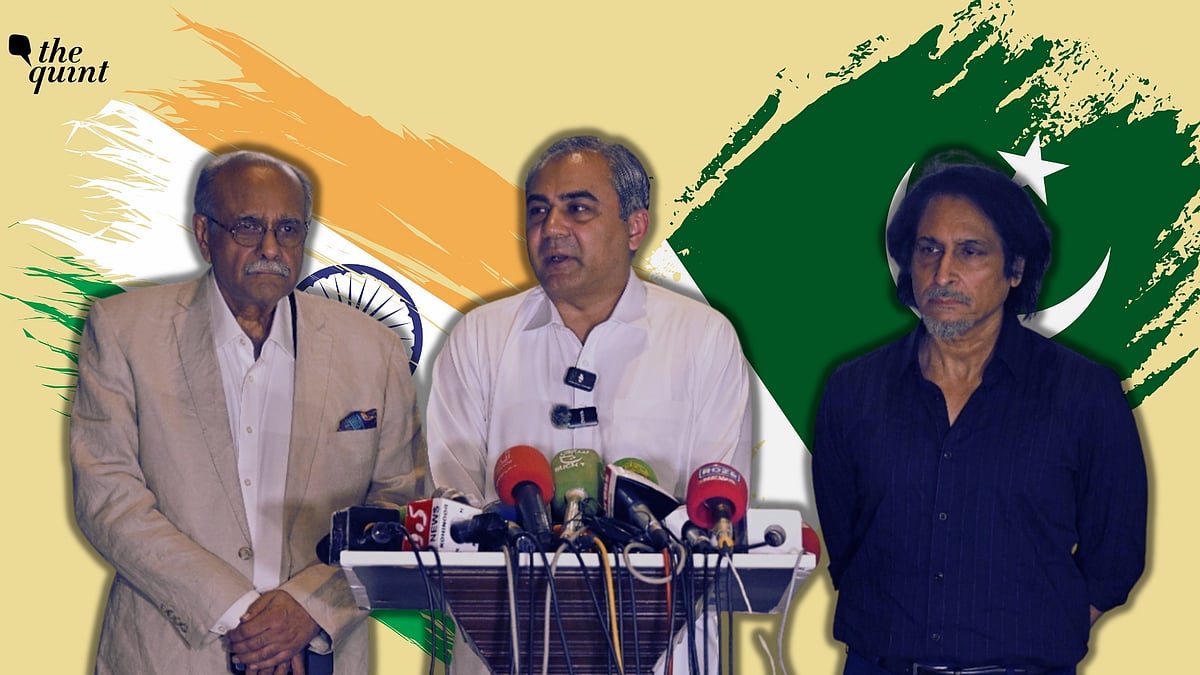Circus Continues: Pakistan's Act Latest Twist In Asia Cup Of Hollow Nationalism
In an Asia Cup which has lost its cricketing glory to chest-thumping patriotism, Pakistan pulled off a dramatic move

advertisement
Record scratch. Freeze frame. That’s the Asia Cup for you. And you’re probably wondering how we got here.
The boycott that never was.
(Photo: AI)
Once hailed as the coronation stage of Asian cricketing supremacy, the Asia Cup now seems little more than a theatre for political posturing and hollow chest-thumping.
That, the tournament will have controversies, became incontrovertible ever since it was announced, considering the animosity between India and Pakistan in the wake of April’s Pahalgam terror attack.
That, Pakistan will be keen to untarnish their global projection after being made to look glaikit while waiting to shake hands while their opponents had already locked their dressing room — that too, after serving them a 7-wicket defeat — was also expected.
But an already blown out of proportion phenomenon blew further out of proportion on 17 September. To an extent, that even Donald Trump might now resort to:
Contemplating a Dramatic Withdrawal
Hours before their fixture against hosts UAE, Pakistan contemplated a dramatic withdrawal.
The trigger? Match referee Andy Pycroft.
Notably, the Zimbabwean told Pakistani captain Salman Ali Agha to not exchange pleasantries with his Indian counterpart, Suryakumar Yadav, during the toss. This act, per the Pakistan Cricket Board (PCB), violated both ICC’s Code of Conduct and its Spirit of Cricket regulations.
PCB had initially lodged an official complaint with the ICC and demanded Pycroft’s removal from the tournament, although it was swiftly rejected.
Asian Cricket Council’s (ACC) president Mohsin Naqvi, who is also the chairman of PCB, vehemently opposed India’s gesture and called it “lack of sportsmanship.”
Oh! The Drama. But Wait, Where Are the Players?
With ICC not accepting to remove Pycroft from his duties, and the tournament’s only other match referee, Richie Richardson being in Abu Dhabi, it became evident that Pakistan’s match will not feature an alternate match referee.
And hence, PCB deliberated on the team’s participation. With two hours left for the game, the UAE players had already arrived at the stadium and were going through their warm-up drills.
Much Ado About Nothing, But There Has To Be A Meeting
Who were at the meeting?
There’s Mohsin Naqvi, of course, being the PCB chairman. But there’s also two of his predecessors — Najam Sethi and Ramiz Raja.
Beyond that, Ramiz Raja and Najam Sethi uniting for a cause can also be seen as a moral victory in terms of Pakistan cricket, for it was not long ago that the pair were involved in a verbal battle, with Raja claiming Sethi only wants ‘limelight’ and all of his motives are ‘non-cricketing.’
Amid all of this, it is announced that the match has been delayed by 90 minutes, and there is, finally, a glimmer of hope for the cricket enthusiasts.
Meeting's Over, Cricket Goes On
Swiftly, with less than a couple of hours left for the delayed start, Naqvi announced that the Pakistani team were asked to depart their team hotel for the stadium.
Pycroft remained as the match referee and PCB’s demand to have him ousted was rejected. So, naturally, the question is — what led to the change in stance?
Their statement read:
As Pakistani players reach the ground and prepare for the game, Naqvi holds a press conference at the Gaddafi Stadium, alongside Raja and Sethi. Explaining PCB’s decision, he stated:
Sethi, meanwhile, criticised India for bringing politics into cricket.
Raja spoke on another tangent, accusing India of favouritism for deliberately deploying Andy Pycroft in their matches.
And Now, Peace. For 3 Days, At Least.
A lot of words has been spent on non-cricketing issues, As for the cricket itself, Pakistan huffed and puffed to score 146/9, before putting up a clinical bowling display to bowl UAE out for 105.
That also means that they have qualified for the Super Four, where they will face India yet again on 21 September. We don’t know what is in store for the next instalment of this apparent circus.